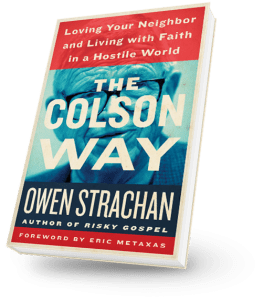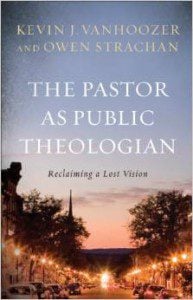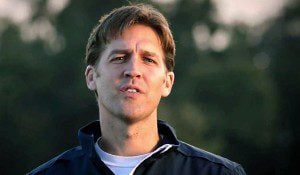 Greetings and welcome to a new blog over here at the Patheos Evangelical Portal: ThoughtLife. My name is Owen Strachan, and I’ll be blogging here about theology, history, ethics, politics, literature and more. My intent is to provide you with excellent Christocentric cultural engagement. I’m excited by how Patheos is fast becoming a cutting-edge spot for Christian public intellectuals, and I hope to live up to that descriptor here.
Greetings and welcome to a new blog over here at the Patheos Evangelical Portal: ThoughtLife. My name is Owen Strachan, and I’ll be blogging here about theology, history, ethics, politics, literature and more. My intent is to provide you with excellent Christocentric cultural engagement. I’m excited by how Patheos is fast becoming a cutting-edge spot for Christian public intellectuals, and I hope to live up to that descriptor here.
*******
A recent CNN post by John Blake wonders out loud whether president Barack Obama–entering his final presidential debate with Mitt Romney tonight–might be the harbinger of a new day for liberal Protestantism. Toward the end of his lengthy piece, Blake quotes Marcia Pally and then broadens the point:
The lines between younger conservative Christians and progressives are blurring, says Marcia Pally, author of “The New Evangelicals: Expanding the Vision of the Common Good.”
Pally spent six years traveling across America to interview evangelicals. She says her research revealed that more than 60% of young evangelicals support more governmental programs to aid the needy, as well as more emphasis on economic justice and environmental protection issues.
“What’s interesting is that these values, associated with Obama and the black Protestant tradition are now also the values of a growing number of white evangelicals,” she says.
Her perspective suggests that Obama’s faith may be treated by history in two ways:
He could be seen as the last embodiment of a progressive version of Christianity that went obsolete.
Or he could be seen as a leader who helped resurrect a dying brand of Christianity for a new generation.
Read the whole piece. This last line caught my attention. I’ve written on Obama’s “brand” of Christianity before for Christianity Today. His liberal Protestantism, wrapped in a revivalist shell, deserves engagement on its own terms.
Here’s what caught my attention in this segment, though: can anyone reasonably expect to “resurrect” liberal Protestantism? Forget the political issues involved here and the rather soft journalism at play in this piece. This is one of the more interesting questions one encounters in the study of modern American Christianity. Richard Wightman Fox, progressive Christian and author of a classic biography on Reinhold Niebuhr, once mused out loud in a fascinating essay that the dynamic of liberal Protestantism–specifically, its shaping by the culture–set it on a collision course with enlightened secular thought.
In other words, the liberal Protestants were so shaped by cultural mores that their project was essentially destined to merge with the culture. This is a brilliant insight, and it tells a great deal of the story of liberal Protestantism in the last 100 years. The moral arc of mainline Christianity is long, and it bends toward the culture.
This relates to Obama and his leftist faith. Can he “raise the oceans” of the mainline church? I am skeptical. I’m not sure anyone or anything could restore the mainline to cultural prominence. Why? Because many in the mainline seem content to act as the religious advocacy wing of Democratic and progressive politics. What does this mean for the broader cultural prospects of the mainline churches? It means that many people today who aren’t overly interested in religion will avoid them, because they can get the same ideas without the religious trappings, the cumbersome community life and odd spiritual practices that are out of step with the American materialist technopoly.
Don’t get me wrong. If anyone could restore the mainline, it would be a figure like Obama. He is clearly gifted and inspiring to many. But I don’t think that many of your creative class, your meritocratic elites, are even aware of the mainline today. Some who paid attention in American History class in college may be inspired by the advocates of the Social Gospel whom Blake mentions. But others will practice the same politics as liberal Protestants and steer clear of the religious baggage.
Then there is a sizable swath of the American populace that will make a different choice, and buy in to high-cost conservative Christianity. This is the story of Dave Shiflett’s recent Exodus, which shows that when it comes to what people seek in religion, there seems to be a persistent desire for something that is alien and out of step with au courant thinking. This ineffable encounter–Ross Douthat calls it “numinous” in Bad Religion— drives people not to a vaguely spiritual platform with sharp political overtones, but to a kingdom led by a Messiah who was not lauded. Preaching his gospel of self-death and God-exaltation over all else, he was crucified for daring to be the savior of the lost.
It is only this Christ who could resurrect the mainline, whose slide we do not cheer. We are those who dare to believe he could do it, for he has resurrected us.












